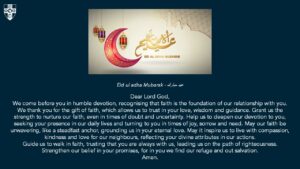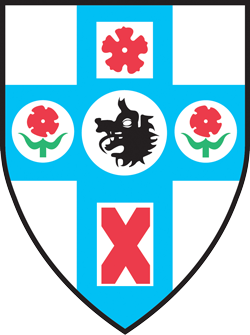As Catholics, we are called to respect and understand the beliefs and traditions of others, recognising the common values that unite us in our shared humanity. One such occasion that offers a rich opportunity for reflection is Eid al-Adha, one of the most significant holidays in Islam. Known as the “Festival of Sacrifice”, Eid al-Adha commemorates the willingness of Prophet Ibrahim (Abraham) to sacrifice his son in obedience to God. This story, which also holds a significant place in our own religious heritage, provides a meaningful point of connection between our faiths.
The story of Abraham (Ibrahim in Islam) is central to the narrative of Eid al-Adha. According to Islamic tradition, Ibrahim was commanded by God to sacrifice his son, Ismail (Ishmael). As a testament to his unwavering faith, Ibrahim prepared to fulfil God’s command. However, at the last moment, God intervened, providing a ram to be sacrificed instead. This narrative resonates deeply within the Catholic tradition as well. In the Bible, Abraham is asked to sacrifice his son Isaac, and just like in the Islamic account, God intervenes to spare Isaac’s life. This story is a profound testament to faith, obedience and God’s providence, illustrating the deep trust and commitment that Abraham had towards God.
From a Catholic perspective, Eid al-Adha inspire a profound reflection on the themes of sacrifice, obedience and divine trist. Abraham’s willingness to sacrifice his son is a powerful example of complete surrender to God’s will. For catholics, this echoes the ultimate sacrifice of Jesus Christ on the cross, where God’s love and mercy are fully revealed. Abraham’s story challenges us to consider the depth of our own faith and willingness to trust in God’s plan, even when it demands great personal sacrifice. it is a reminder that true faith often requires us to relinquish our own desires and place our trust entirely in God’s hands.
While Catholics do not celebrate Eid al-Adha, recognising and respecting this significant event in the Muslim calendar fosters mutual respect and understanding. The spirit of Eid al-Adha, characterised by acts of charity, community and compassion. In a world where religious differences can often lead to misunderstanding and division, occasions like Eid al-Adha, characterised by acts of charity, community gathering and the sharing of food, aligns with Catholic values of generosity, community and compassion. In a world where religious differences can often lead to misunderstanding and division, occasions like Eid al-Adha present valuable opportunities for interfaith dialogue. By learning about and respecting the practices and beliefs of our Muslim neighbours, Catholics can foster a spirit of harmony and cooperation. Interfaith dialogue is not about compromising our own beliefs but about recognising that shared values that unite us. Themes of sacrifice, trust in God and charity are universal and can serve as common ground for building relationships and understanding between Catholics and Muslims.
As Catholics, reflecting on Eid al-Adha encourages us to deepen our own faith and commitment to God’s will. it invites us to consider the profound examples of faith and sacrifice present in our own tradition and in the traditions of others. In celebrating our shared heritage with respect and understanding, we honour the diversity of God’s creation. by embracing the values that unite us – faith, sacrifice, and charity – we can work together to build a more compassionate and just world.


